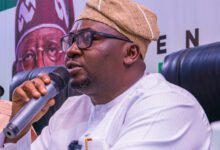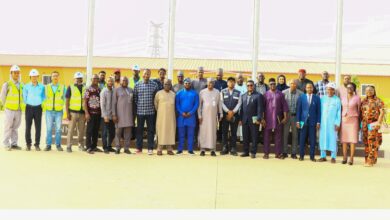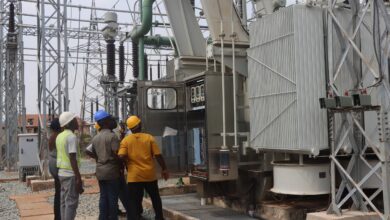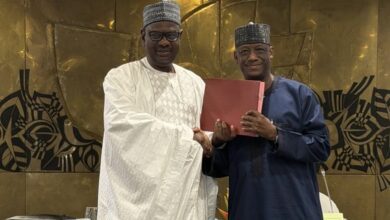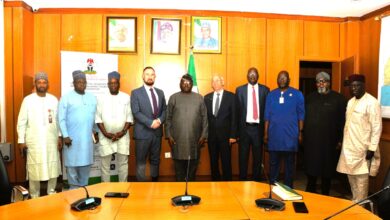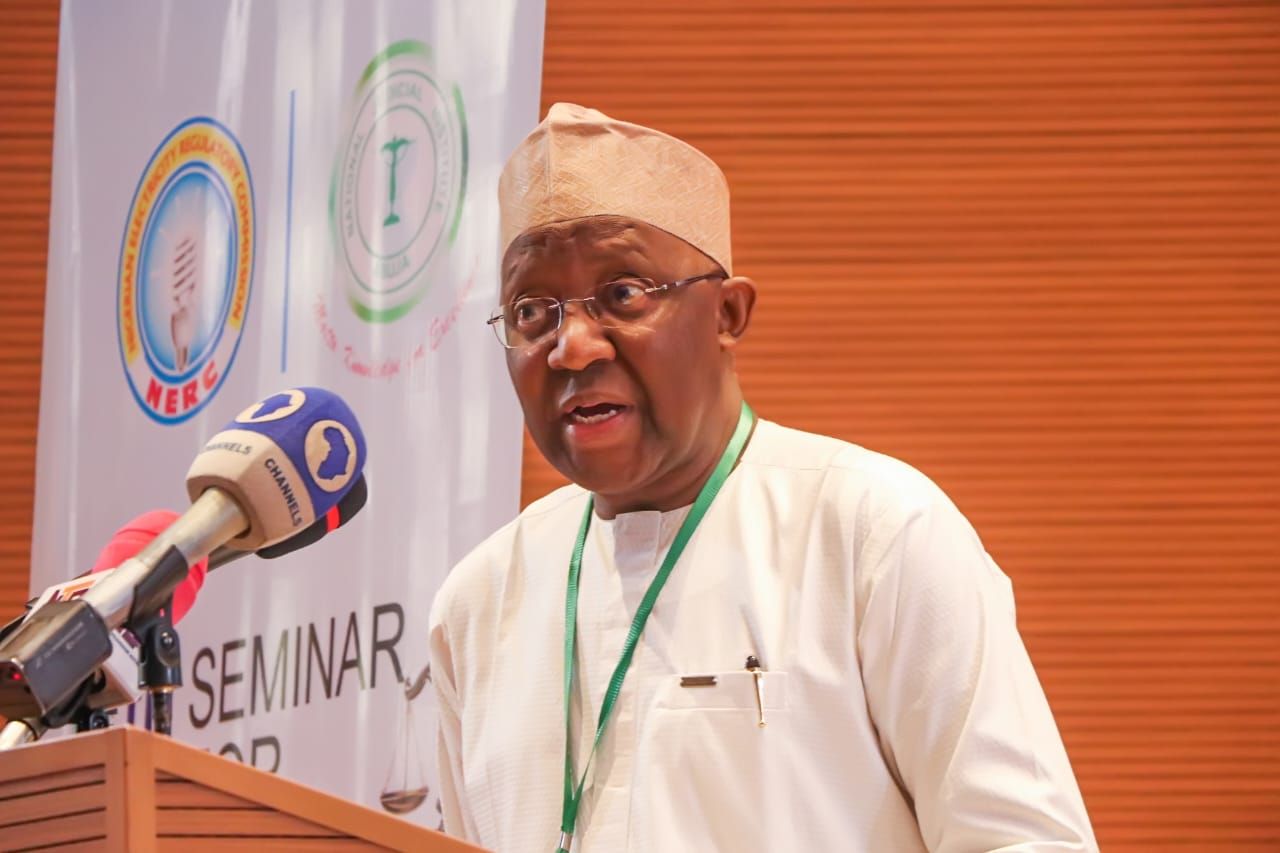
Concerned by the incessant electricity grid collapse in Nigeria, the Nigerian Electricity Regulatory Commission (NERC) has directed the Nigeria Electricity Market Operator (MO) to use the N30 billion meant for the procurement of spinning reserve.
NERC Chairman, Engr. Sanusi Garba gave the directive at an Investigative Public Hearing on Power System Disturbances on Thursday in Abuja.
In electricity networks, the spinning reserve is the generating capacity available to the system operator within a short interval of time to meet demand in case a generator goes down or there is another disruption to the supply.
He said, “There have also been references to spinning reserve, and the Commission is not adverse to providing resources to procure spinning reserve. In fact, the Market Operator did mention that he is sitting on N30 billion to procure spinning reserve, and if this is identified as the critical thing we need to do to make sure there is more stability of the grid, then obviously you are not a banker, you are supposed to use that money for the purpose it was meant for. If there is any indication of adequacy of resources to do it, you revert back to the Commission to see what can be done.”
Engr. Garba noted that the incessant grid collapse was affecting the viability of both the generation, and distribution Companies operating in Nigeria, and also the electricity consumers, especially, the manufacturers.
Speaking earlier, in a presentation, the Managing Director of the Transmission Company of Nigeria (TCN), Engr. Sule Abdulaziz explained that a total load of 675megawatts was lost from the grid on October 14, 2024, causing instability and eventually partial collapse, revealing that the Free Governor Control by most power plant units at the time of the incident were inactivated.
Represented by the Executive Director, System Operation, Engr. Nafisat Ali, the TCN boss further explained that the incident of October 19, 2024 was as a result of the fire outbreak which occurred involving a Y-phase Current Transformer (CT) at the bus section of 330kV Jebba TS, leading to simultaneous tripping of multiple 330kV transmission lines.
According to him, the nation’s power sector recorded 107 total and partial grid collapses between 2015 and 2024, adding that out of the six (6) system disturbances recorded so far this year, four (4) were caused by a loss of generation while two (2) were caused by loss of transmission lines.
He listed some of the challenges causing grid collapse to include insecurity and vandalism of power transmission equipment and other related facilities, lack of transmission line redundancy, aged, defensive and obsolete transmission equipment, lack of effective SCADA system, sudden loss of generation due to inadequate gas, lack of spinning reserve, lock of Free Governor Control by the generators, non-compliance to annual maintenance schedule plan, non-harnonisation of gas pipeline and power plant units’ maintenance amongst others.
On strategies to mitigate future events, the MD said, there is the need to implement the SCADA system, review of defense plan (UFLS) scheme, relay settings/coordination, islanding of grid, introduction of penalties for violation of free governor control by the generators, availability of gas, enhanced security measures to combat transmission and pipeline vandalism amongst others.
Reacting to the TCN presentation, the Managing Director of the Association of Power Generation Companies (APGC), Dr. Joy Ogaji stressed the need for transparency in the management of the grid.
She noted that the level of frequency fluctuation and crimpings on the grid cannot be cured by Free Governor Control, adding while she is not saying that spinning reserve is the solution, putting spinning reserve and the Free Governor Control side-by-side could cure the volatility of the grid.
She called for refencing and the need to build more injection stations for effective protection of the 33kv feeders in the transmission stations.
While calling on the distribution companies to improve their network, the GenCos Spokesperson also called for equipment audit in TCN.
On his part, Engr. John Ayodele said the national grid is weak, and that there is no spinning reserve in place to help stabilise the grid in the event of system disturbance.
He lamented the debt of engineering knowledge in the TCN, saying that most of the staff are not properly trained and there is also lack of operational tools to handle some of the tasks required.
He advocated the setting up of technical committee and not political committee that is properly funded to evaluate the grid.
Also speaking, a Private Power System Consultant, Engr. Abdullahi Garba, said Nigeria has a dead grid for a lot of reasons, adding that the fragility of the grid, and the lack of studies to have operating protocol in times of failure is not there. Therefore, there is a need to rebuild the grid.
In his concluding remarks, the NERC Chairman thanked all the participants for the engaging session, stating that the commission has taken note of their contributions, and would go back and analyse them.
He said, “there is an extensive discussion on the SCADA project, assuring that there is an going work within the commission to make sure that any missing scope so far identified is actually captured. We have made significant effort to identify possible funding sources for the scope that may be seem to be missing today.
“We are also very much passionate about identifying short and immediate term action we need to take, following the hearing today and also submissions that we will be receiving after the hearing.
“Clearly the issue of maintenance culture has been repeated by many of the participants here. From our own intervention we expressed our concern by TCN not optimising its own utilisation of scarce resources, so we will look at the PIP again and make sure that some of the urgent things that we need to do today to mitigate the risk of this story of system collapse- a national embarrassment is a story of the past.
“There have been contributions about enforcement of the grid codes, especially, by the System Operator, the industry provides significant powers on the system operator to enforce those codes and we will make sure that the system operator even prior to the unbundling actually enforces those regulations and codes on all participants, not only GenCos”, the NERC boss said.
He pledged to work closely with the TCN and other stakeholders in the sector to maintain and replace some of the identified aged and obsolete equipment to prevent system collapses.


